
Types of Loans
The leading banks usually offer various types of loans. We will help you choose the one that best suits your needs, and help you through the application process. The following are brief descriptions of the various types of loans available.

Client Types
MultiNET works with you in pursuit of your property goals. Whether you are married, single, buying as a business, or whatever your requirement, we have solutions that work harder to achieve more.

Property Types
Becoming a home owner is an exciting event, but it may come with many doubts and procedures that aren't familiar to first time home owners.

Application Process
Step by Step Guide to the Home Loan Application and Registration Process.

Credit Record
Maintaining a healthy credit record. is key to gaining access to the finance you need. Here are 10 steps to follow.

Credit Profile
Knowing your credit profile puts you in a stronger, more informed position to pursue the right kind of properties.

Required Documents
There are different requirements dependent on your employment status, e.g. full time and working for a company, or self-employed. Check your status here.

Useful Contact Details
Are you looking for the Bank Ombudsman, the National Credit Regulator or other relevant bodies? We have a list of the most relevant organisations.
Type of Loans
The leading banks usually offer various types of loans. We will help you choose the one that best suits your needs, and help you through the application process. The following are brief descriptions of the various types of loans available.
ORDINARY LOANS
A loan granted to an applicant who uses the proceeds of a loan to purchase/acquire immovable property on which there are existing buildings and other fixtures, or which is vacant land.
ORDINARY LOANS: FURTHER ADVANCE
Where the owner of fixed property that is already bonded as security for an existing loan requires further finance, the bank will grant a further advance subject to the value of the bonded property being adequate security for the increased loan amount. The client is normally allowed to use the amount of the further advance extended according to his own discretion.
BUILDING LOANS
A loan granted to an applicant to erect a building on a vacant stand (client applies for a full building package). The loan is granted subject to a mortgage bond being registered in favour of the bank. After registration of the bond, the bank will advance monies to the client or his contractor as the building work is progressed (payment of funds is based on progress, e.g. land, foundations, roof height and finishes).
BUILDING LOANS: FURTHER ADVANCE
Where the owner of the fixed property that is already bonded as security for an existing loan requires finance to erect buildings, effect alterations, improvements or additions to the buildings already established on the immovable property. If the future value of the property, when complete, is adequate, the bank will be able to grant the further advance. The bank may advance the full amount immediately (depending on the security available against the mortgage bond), advance the amount as progress is made with the building operations, or may retain a portion subject to certain suspensive conditions. Where the margin between the loan account balance and the mortgage bond allows for such an advance to be made, the bank may do so. If the margin is insufficient, an additional mortgage bond will have to be registered.
Client Types
Natural Person over age of 18 years.
Any Natural Persons over the age of 18 years who wish to purchase a property in their joint names.
- Out of Community of Property: Both partners have full contractual power. Bond can be in both names or either name provided. Each qualifies in their individual capacity.
- In Community of Property: Bond must be registered in both names.
- Foreign Matrimonial Property: Marriage partners are viewed according to law of country where they are married.
- Tribal Law: This is not recognised as a legal marriage.
- Religious (Hindu or Muslim): Not recognised as a legal marriage unless magistrate or commissioner has conducted it.
- Minor: Must obtain consent from Supreme Court in terms of Section 80 of Administration of Estates Act 60 or 1965 before buying a property.
- A Company can buy property provided that Section 38 of the Companies Act will not be contravened. This prohibits company from financing the purchase of its own shares.
- PTY LTD COMPANY: Has memorandum and articles of association and 1–50 shareholders.
- LTD COMPANY: Same as Pty Ltd with minimum of 7 shareholders and 2 directors.
- INFORMAL BODY: Recognised churches and associations may buy property – obtain latest set of financials and resolution from last meeting approving purchase of property.
- CLOSE CORPORATION: 75% of members to agree on either purchase or sale, 1–10 natural persons. If client buys existing property registered in name of CC and keeps CC, client will be liable for any debt incurred by CC.
DEFINITION ON DIFFERENT ENTITIES
A Trust is formed by an agreement in terms of a Trust Deed whereby the assets of one person is placed under the control of another person in order to administer the asset to the benefit of the trust beneficiaries.
It is essential for a Trust Deed to be obtained in the event of a Trust providing security and especially a suretyship. The Trust number has anything from 1 up to 8 digits – 4 digits for the year.
A Trust is not a legal entity. It functions through its Trustees and keeps on existing despite any changes in the Trustees. Unless the Trust Deed stipulates otherwise, the Trustees always have to act jointly.
To bind a Trust, it is essential that the Trust Deed is obtained and scrutinised to ascertain the powers of the Trustees. If a Trust applies for an advance or provides security or suretyship, resolutions prior or simultaneous to the signing of security documents by all the Trustees to this effect must be obtained.
Since a Trust is not a legal entity, all documents in favour of a Trust should be completed and signed by all the Trustees in their capacity as Trustees.
When a person runs any type of business under a trade name of which he is the Sole Owner.
The contractual capacity of a Sole Proprietor vests in the owner who acts on behalf of the enterprise in his personal capacity.
When dealing with a Sole Proprietor, you will obtain the same documentation as when you are dealing with a natural person.
A Partnership is formed when two or more persons (maximum 20) decide to run an enterprise and to share the profits in terms of an agreement which can be in writing, verbally or tacitly.
The Bank requires that the relevant documentation applicable to any transaction entered into with a Partnership MUST be signed by ALL the Partners.
ALL the Partners are jointly and severally liable for the commitments of the Partnership. If the Partnership is declared insolvent, the private estates of the Partners are also sequestrated.
When dealing with a Partnership, you will obtain the same documentation for each Partner as when you are dealing with a natural person.
A Close Corporation is an association of persons formed in terms of the Close Corporations Act No. 69 of 1984. A Close Corporation is a legal entity with one or more (10 maximum) members. The CC number always starts with the year it was formed followed by 6 digits then followed by 23 (eg 1984/123456/23).
As a result of various complicated stipulations in the Close Corporations Act, the Bank requires ALL the members to sign security documents on behalf of the Close Corporation and that they guarantee the facilities in the personal capacity / and give unlimited cessions of loan accounts.
NB The Bank requires certified copies of the Founding Statement and Certificate of Incorporation.
A Company is an association of persons formed in terms of the Companies Act No. 61 of 1973. A Company functions through a board of Directors and is a separate legal entity. The registration number always starts with the year it was formed followed by 6 digits then followed by 10 or 07 (eg 1973/123456/10 or 07).
Public Company (Ltd)
- At least 7 persons with at least 2 directors.
- Shares and debentures can be listed and traded on Stock Exchange.
Private Company (Pty) Ltd
- One or more with maximum of 50 persons with at least 1 Director.
- Shares cannot be freely transferred.
Obtain the Company’s public documents – which are:
- Certificate of Incorporation.
- Certificate to Commence Business.
- Memorandum of Association.
- Articles of Association.
NB Section 38 restricts Companies. Imposes an absolute prohibition on any form of financial aid or furnishing of security by a Company in favour of anyone else for the buying of shares in the Company itself or in its holding Company.
INFORMAL BODY
An informal body is an informal association of persons who do not have profit as an objective, e.g. Churches, Clubs, Associations and Schools.
In order to bind an informal body as such, it is crucial to obtain the constitution or regulations of the body to determine whether any powers were granted. An informal body cannot act by itself or make decisions and a resolution in respect of advances asked for and the provision of security must be obtained under all circumstances.
CONTRACTUAL CAPACITY
A minor is any unmarried natural person who has NOT reached the age of 18 years or who has NOT been declared a major by court.
A minor is emancipated when he is 18 years or older or through marriage and may apply to be declared a major in terms of the Age of Majority Act No. 57 of 1972.
Certain sections of the Children’s Act No. 38 of 2005 came into effect on 1 July 2007. The Act now determines that a child becomes a major on reaching the age of 18. The Age of Majority Act, 1972 has been repealed.
Persons who are 18 years and older can now sign legally binding contracts without the assistance of their legal guardian. For the bank this means that persons 18 years and older can now enter into loan agreements and sign collateral documentation without assistance.
Notwithstanding the above, affordibility and the normal credit criteria still applies.
1. TRIBAL CUSTOM
South African Law does not recognise these marriages.
2. COMMON LAW
These persons are to be regarded as married in Community of Property (COP).
3. RELIGIOUS CUSTOMS (PERSONS OF EASTERN DESCENT)
South African Law does not recognise these marriages. Both parties are therefore regarded as being unmarried.
4. MARRIED OUT OF SOUTH AFRICA
These persons are to be regarded as married in Community of Property. If married under laws of England or Zimbabwe, these marriages are out of community of property and certified copies of relative documents must be kept on file. Spouses married abroad must assist each other in all deeds and documents which are to be registered in the Deeds Office.
5. MARRIED IN COMMUNITY OF PROPERTY (COP)
When married in Community of Property, spouse to assist in signing all documentation. Joint estate, therefore all documents to be signed by BOTH persons.
6. MARRIED ANC (ANTE NUPTUAL CONTRACT)
No consent of spouse required.
7. DIVORCED
Have FULL contractual capacity.
8. PHYSICALLY AND MENTALLY INCOMPETENT PERSONS
Only the curator may act for the incompetent person as he has NO contractual capacity.
Property Types
The term “townhouse” has become a bit of a catch-all term to refer to any home that shares a building with other units, particularly if there are no other units above or below, but the true explanation of a townhouse is simple. A townhouse is a home that is attached to adjacent houses. Townhouses, also sometimes called row houses, can be built as single or multi-storied structures.
A flat is an apartment and may have a number of rooms for exclusive use of the person living there. A “flat” can also be one unit in a building comprising several contiguous housing units, as long as it’s one or two stories (a “block of flats”).
- Out of Community of Property Both partners have full contractual power. Bond can be in both names or either name provided. Each qualifies in their individual capacity.
- In Community of Property Bond must be registered in both names.
- Foreign Matrimonial Property Marriage partners are viewed according to law of country where they are married.
- Tribal Law This is not recognised as a legal marriage.
- Religious (Hindu or Muslim) Not recognised as a legal marriage unless magistrate or commissioner has conducted it.
- Minor Must obtain consent from Supreme Court in terms of Section 80 of Administration of Estates Act 60 or 1965 before buying a property.
Cluster home is an arrangement where numerous homes are located in a single area with boundaries and fences also. Cluster homes are created in a way that many houses are centred in one single unit which makes space for several owners at the same time.
Cluster home is an arrangement where numerous homes are located in a single area with boundaries and fences also. Cluster homes are created in a way that many houses are centred in one single unit which makes space for several owners at the same time.
Cluster home is an arrangement where numerous homes are located in a single area with boundaries and fences also. Cluster homes are created in a way that many houses are centred in one single unit which makes space for several owners at the same time.
- Share Block Scheme
- Unconventional Construction
- Timeshare Unit
- Hotel Suites
- Prefabricated / Movable Structures
- Churches
- Restaurants
Step by Step
Home Loan Application and Registration Process
1
STEP 1: HOME LOAN APPLICATION
After you have purchased your new home, either you or your estate agent will provide us with an OTP (Offer to Purchase).
2
STEP 2: INTERVIEW
One of our experienced consultants will conduct an interview with you to obtain all necessary information that the banks may require.
3
STEP 3: SUPPORTING DOCUMENTS
You will be asked to supply all the required supporting documents as requested by our consultant.
4
STEP 4: SUBMISSION
We will electronically submit your application to the relevant bank/s.
5
STEP 5: ISSUE QUOTATION
The bank will issue a quotation detailing the interest rate, costs estimated instalment and other important information for your evaluation and signature.
6
STEP 6: CONVEYANCING
Once you have signed the quotation the bank will instruct an attorney to handle the bond registration process on their behalf, an appointment will be made with you to sign these registration documents.
7
STEP 7: LODGEMENT
Once documents have been signed by you, the Attorney will lodge the bond documents at the Deeds Office simultaneously with the documents of the Attorney handling the transfer of the property.
8
STEP 8: REGISTRATION
Registration will take place approximately 10 working days following date of lodgement.
10 Steps to maintaining
a Healthy Credit Record
Keeping a good credit rating is far easier than trying to repair a poor one. Avoid making late payments to creditors and avoid paying less than the required monthly instalment. Check your credit record. If you do have a judgment listed against you, you need to take the necessary steps to ‘fix’ that record. It is very important that you restore your creditworthiness.
Keep to your regular monthly payments, and make the payments on time.

If you fall into arrears, get up to date as soon as possible and don’t fall behind again.

Don’t pay less than the minimum instalment each month, so be sure you can afford the instalments before applying for the credit.

To determine whether or not you can afford your repayments, draw up a monthly budget for yourself. The trick is to stick to it and cut out unnecessary expenses if need be.

Research shows that the average South African spends 75% of his or her after tax income on debt, which doesn’t leave much for anything else. Reduce your debt by paying more than the minimum payment on your accounts. Do it one at a time starting with the most expensive debt (the one with the highest interest rate).

Aim to reduce the amount of money that goes on debt every month to between 30% and 50% of your after tax income.

If you are unable to make a payment due to unforeseen circumstances, talk to the creditor concerned and make alternative arrangements to pay back what you owe. They may well accept reduced monthly payments spread out over a longer repayment period. It is best to pay something every month, if only to show your goodwill and establish a payment record in the event they decide to take legal action against you. It is best to get an agreement in writing stating that they will not take legal action for the period of the repayment arrangement.

All your effort in paying off your debts will only work if you do not take on more debt. So, when you are tempted to buy something, remind yourself that you are trying to pay off your accounts and that it will be worth it to be patient for a while.

It is important to note that points number 7 and 8 do not apply to a debt for which there is already a judgment listed against you. If you have an old legal debt, you are far worse off if you pay it off through collection attorneys. You will probably pay a lot more than what you should since you will be paying the attorneys fees as well as the original debt.

Don’t ignore a letter of demand, since it is often followed by summons from a court. While it can be really tempting to ignore it and hope it goes away, be assured it will only get worse.

Previous
Next

Keep to your regular monthly payments, and make the payments on time.

If you fall into arrears, get up to date as soon as possible and don’t fall behind again.

Don’t pay less than the minimum instalment each month, so be sure you can afford the instalments before applying for the credit.

To determine whether or not you can afford your repayments, draw up a monthly budget for yourself. The trick is to stick to it and, cut out unnecessary expenses if need be.

Research shows that the average South African spends 75% of his or her after-tax income on debt, which doesn’t leave much for anything else. Reduce your debt by paying more than the minimum payment on your accounts. Do it one at a time, starting with the most expensive debt (the one with the highest interest rate).

Aim to reduce the amount of money that goes on debt every month to between 30% and 50% of your after-tax income.

If you are unable to make a payment due to unforeseen circumstances, talk to the creditor concerned and make alternative arrangements to pay back what you owe. They may well accept reduced monthly payments spread out over a longer repayment period. It is best to pay something every month, if only to show your goodwill and establish a payment record in the event that they decide to take legal action against you. It is best to get an agreement in writing stating that they will not take legal action for the period of the repayment arrangement.

All your effort in paying off your debts will only work if you do not take on more debt. So, when you are tempted to buy something, remind yourself that you are trying to pay off your accounts and that it will be worth it to be patient for a while.

It is important to note that points number 7 and 8 do not apply to a debt for which there is already a judgment listed against you. If you have an old legal debt, you are far worse off if you pay it off through collection attorneys. You will probably pay a lot more than what you should, since you will be paying the attorneys fees as well as the original debt.

Don’t ignore a letter of demand, since it is often followed by a court summons. While it can be really tempting to ignore it and hope it goes away, be assured it will only get worse.
Know Your
Credit Profile
WHAT IS A CREDIT PROFILE?
AIt is the credit history of the consumer / client or business and includes personal information, the amount of credit applications and proof of payments. Financial institutions and credit suppliers use this information prior to granting the requested credit. A credit profile also includes positive information, which is beneficial to a successful credit application, and is not the same as a ‘black list’.
WHERE IS THE CREDIT PROFILE KEPT?
Credit bureaus are companies that safe guard these profiles. A credit bureau can be seen as a library of credit information. They provide the relevant information to financial institutions and credit suppliers which enables them to make accurate and informed decisions.
HOW DO YOU DETERMINE A CONSUMER'S CREDITWORTHINESS?
Credit bureaus and suppliers use a credit grading process to determine the consumer and / or business’ credit worthiness. Credit grading:
Consists of both positive and negative information to predict the consumer’s ability to repay a loan.
Used to determine credit risks and patterns.
CAN A CONSUMER REQUEST A COPY OF THEIR CREDIT PROFILE?
Yes, any consumer has the right to request a copy of his/her credit profile, and to report any discrepancies. The following numbers can be used for this purpose:
(NB – The credit bureau might levy a fee of R25 or more)
Experian (consumer)
0861 105 665
Credit-forum (business)
(011) 777 2700
Micro Lenders Credit Bureau
(MLCB) – 0861 287 328
Transunion ITC (Consumer and business) – 0861 482 482
HOW TO DISPUTE INFORMATION ON A CREDIT PROFILE
Phone the credit bureau immediately with the relevant information, if any discrepancies are noted. Always obtain a reference number. If the dispute is not resolved with 30 days, the consumer can contact the the Ombudsman for credit information.
Please note that the credit profile is:
Not based on race or religion.
Dynamic and changes everytime new information is added.
Useful Contact Details
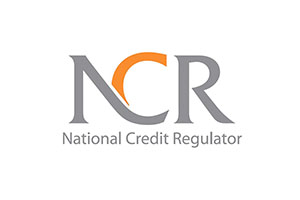
The National Credit Regulator
Website: www.ncr.org.za
Contact: 0860 627 627
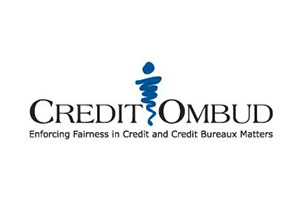
Credit Information Ombudsman
Website: www.creditombud.org.za
Contact: 0861 662 837
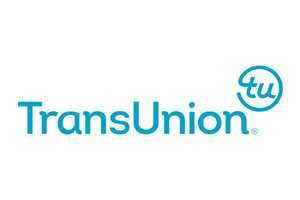
TransUnion (formerly ITC)
Website: www.transunion.co.za
Contact: 0861 482 482
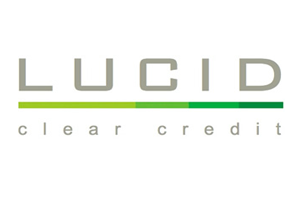
Lucid Clear Credit
Website: www.lucidliving.co.za/sign-in
Contact: 010 590 5617

Bank Ombudsman
Website: www.obssa.co.za
Contact: 0860 800 900
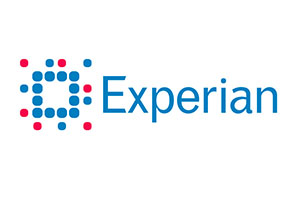
Experian
Website: www.experian.co.za
Contact: 0861 105 665
